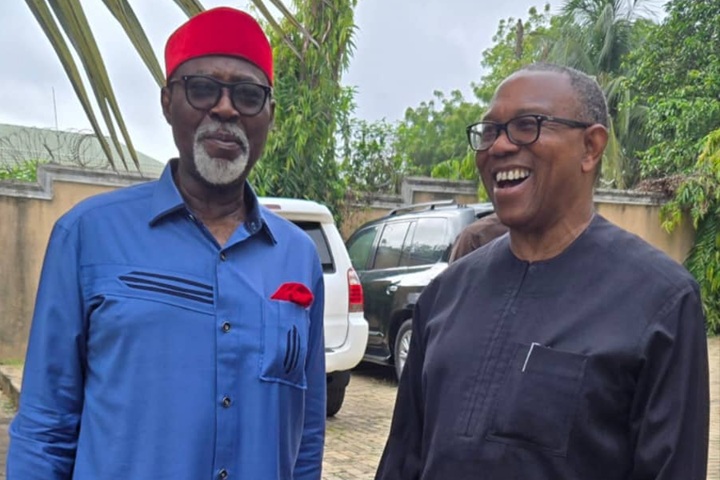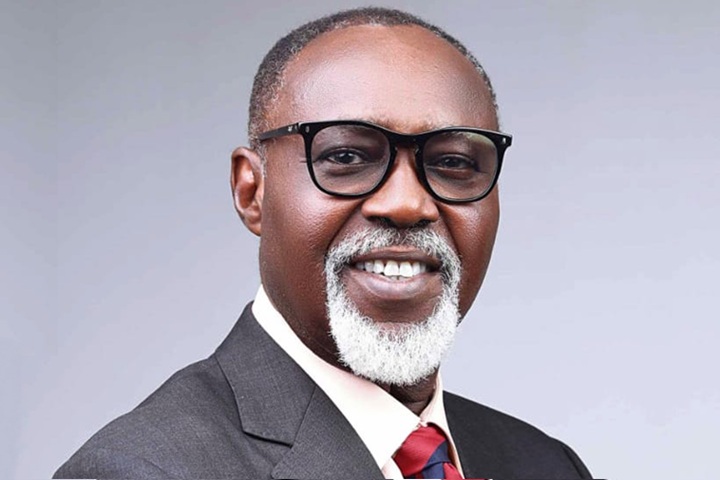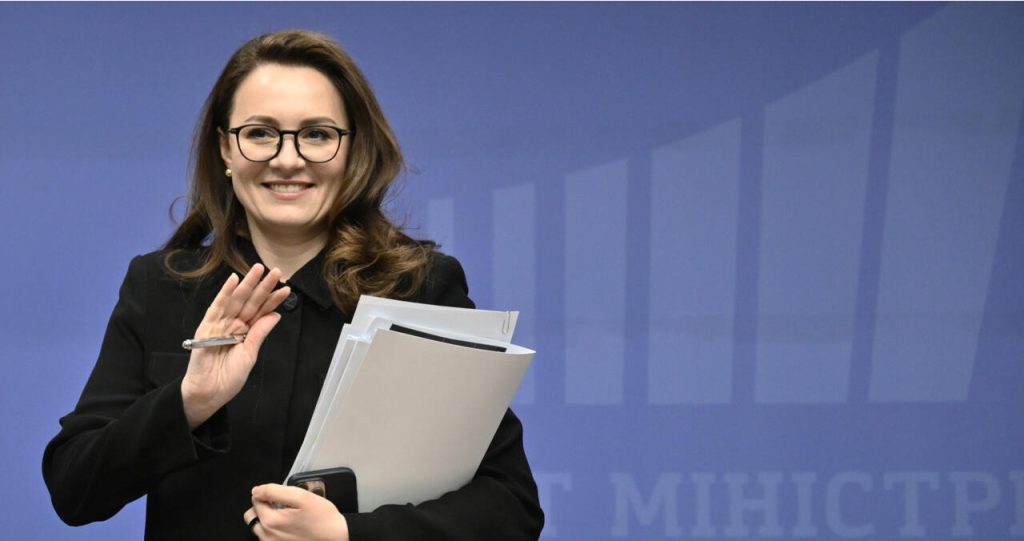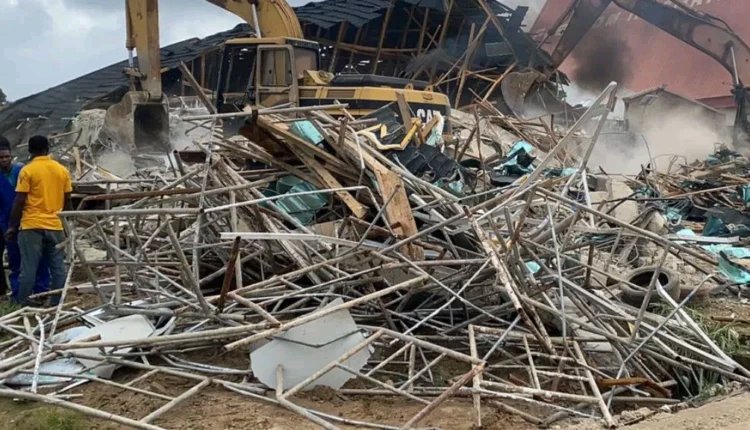Economy
Naira rises 0.6% against Dollar in official market

The Nigerian Naira, on August 5, 2024, gained value in the official market, trading at N1,607.15/USD.
Data from the Fixed Income, Currencies, and Commodities (FMDQ) Exchange, which manages the Nigerian Autonomous Foreign Exchange Market (NAFEM), revealed that the naira appreciated by N9.93.
This indicates a 0.61% increase, as the Naira rises from N1,617.08/USD on the previous trading date, August 2, 2024.
However, the total daily turnover dropped to $77.09 million on August 5, 2024, down from $131.55 million reported on August 2, 2024.
Meanwhile, at the Investor’s and Exporter’s (I&E) window, the naira fluctuated between N1,620.50 and N1,570.00/USD
A decade of naira fluctuations
Over the past decade, Naira has experienced significant fluctuations, with periods where the Naira rises and falls due to various economic, political, and global factors.
Below is a detailed examination of the rise and fall of Naira for the last decade.
2014-2015: Initial decline
During this period, Nigeria faced a severe economic downturn primarily due to a drop in global oil prices.
Oil exports account for a substantial portion of Nigeria’s revenue and foreign exchange reserves.
The decline in oil prices led to reduced foreign exchange inflows, exerting pressure on Naira.
In 2014, the CBN devalued the Naira, adjusting the official rate from N155/USD to N168/USD.
In 2015, Naira faced further depreciation as the CBN struggled to defend the currency amidst declining reserves and growing demand for foreign currency.
The official rate was adjusted to around N197/USD.
However, on the parallel market, Naira’s value fell dramatically even more, reflecting a significant gap between the official and unofficial rates.
2016-2017: Devaluation and recession
In 2016, the Naira faced intense pressure due to Nigeria’s recession, low oil prices, and Niger Delta production cuts.
The CBN’s foreign exchange controls and import restrictions led to a scarcity of foreign currency in the official market.
To address the growing disparity between the official and parallel market rates, the CBN devalued Naira multiple times.
In June 2016, the CBN introduced a flexible exchange rate policy, moving the official rate from around N197/USD to N305/USD.
Despite efforts, the parallel market rate peaked at N500/USD, showing a severe dollar shortage and lack of confidence.
The government also introduced the I&E window policy in 2017, which allowed for a more market-determined exchange rate.
This initiative helped to stabilize Naira to some extent, with the parallel market rate improving to around N360/USD by the end of the year.
2018-2019: Naira stabilization and relief
Between 2018 and 2019, Naira experienced a period of relative stability.
The recovery in oil prices and increased foreign reserves provided some support to the currency.
The CBN managed the float system to stabilize the Naira between N360/USD and N365/USD in official and parallel markets.
Additionally, the CBN’s intervention schemes, including the Anchor Borrowers’ Programme, aimed to boost local production and reduce import dependence.
However, structural issues, such as inflation and a weak economic growth rate, continued to weigh on the currency.
2020: COVID-19 pandemic and Naira depreciation
The onset of the COVID-19 pandemic in 2020 brought unprecedented challenges to the global economy, and Nigeria was no exception.
Naira faced renewed pressure as oil prices plummeted due to reduced demand and a global economic slowdown.
Nigeria’s foreign reserves were significantly impacted, leading to another round of depreciation.
In March 2020, the CBN adjusted the official exchange rate from N306/USD to N360/USD.
The parallel market rate also depreciated sharply, reaching over N450/USD at various points during the year.
To manage the economic fallout, the CBN further devalued the official rate to N380/USD in August 2020.
2021-2023: Continued struggles and adjustments
Naira continued to experience depreciation in the subsequent years, influenced by ongoing economic challenges, including inflation, unemployment, and insecurity.
The CBN adopted multiple exchange rates for different market segments, including the official rate, the I&E window, and the Bureau De Change (BDC) segment.
This led to some confusion and inefficiencies in the market.
In May 2021, the CBN unified the official rate and the I&E window rate at N410/USD, a move aimed at improving transparency and investor confidence.
However, the parallel market rate continued to diverge significantly, often trading above N500/USD due to persistent demand for dollars and limited supply.
By 2023, political uncertainty and external debt strained Nigeria’s reserves and impacted investor sentiment.
The CBN’s efforts to stabilize the currency, such as tightening monetary policy and banning the sale of foreign exchange to BDC operators, had mixed results.
2024: Current status and outlook
As of 2024, Naira remains under pressure, with the official rate hovering around N460/USD and the parallel market rate significantly higher.
The CBN continues to grapple with balancing exchange rate stability with economic growth.
Structural issues, such as dependence on oil revenues, limited diversification, and external debt, remain key challenges.
The Naira’s future value hinges on the government’s reforms, foreign investment, and inflation management.
The global economic environment, particularly oil prices and geopolitical developments, will also play a critical role in determining the Naira’s trajectory.
For Diaspora Digital Media Updates click on Whatsapp, or Telegram. For eyewitness accounts/ reports/ articles, write to: citizenreports@diasporadigitalmedia.com. Follow us on X (Fomerly Twitter) or Facebook











